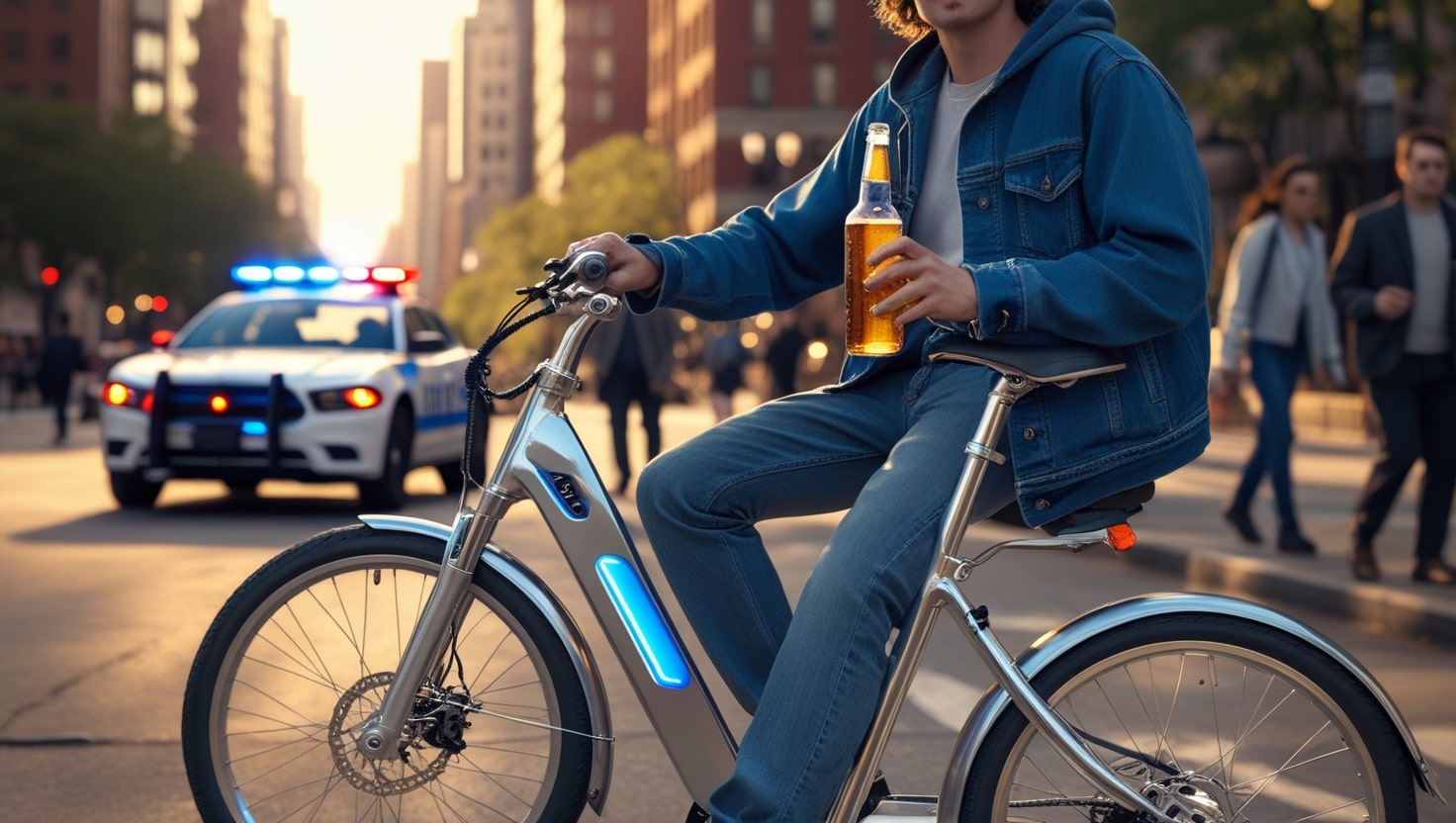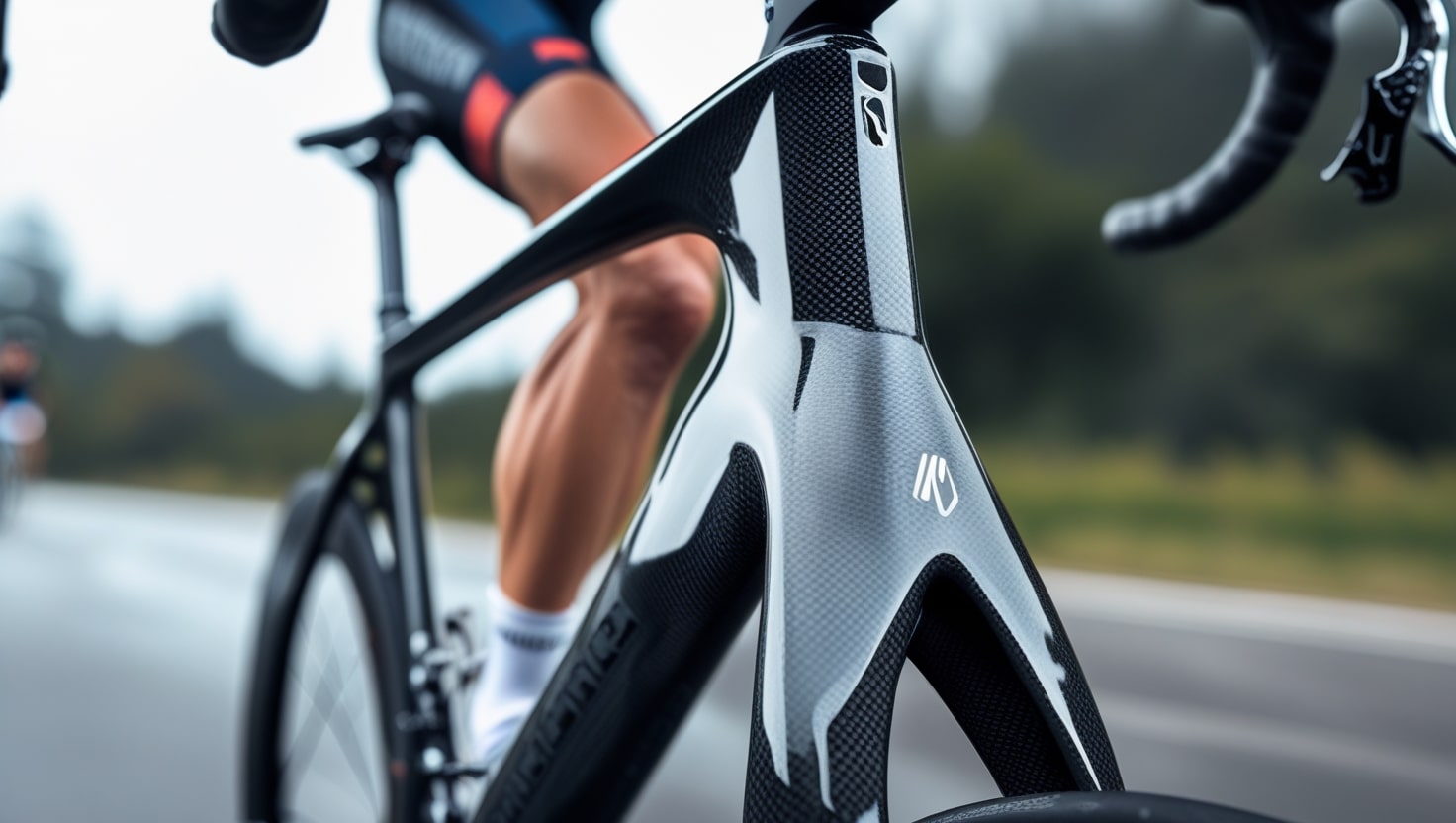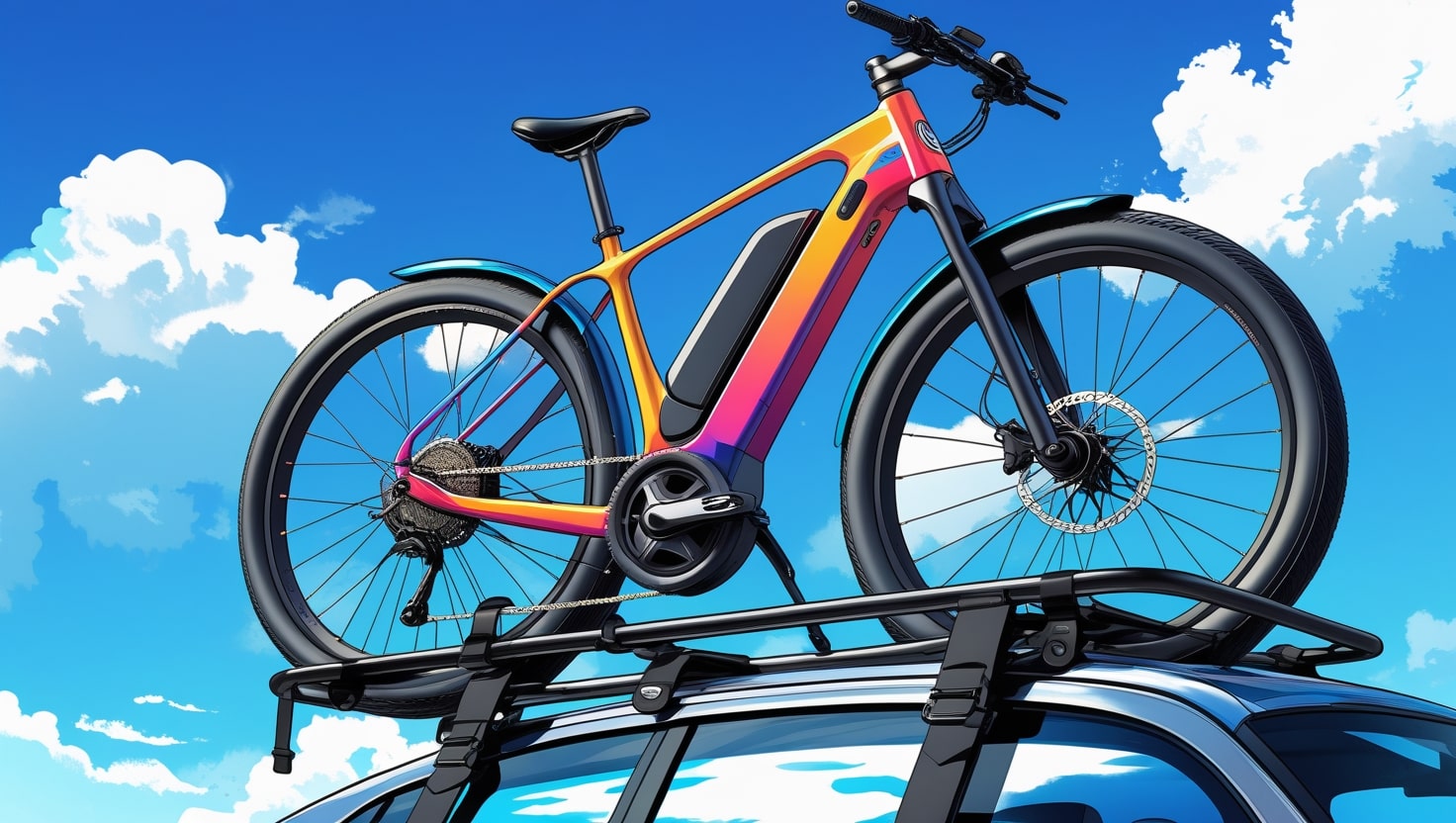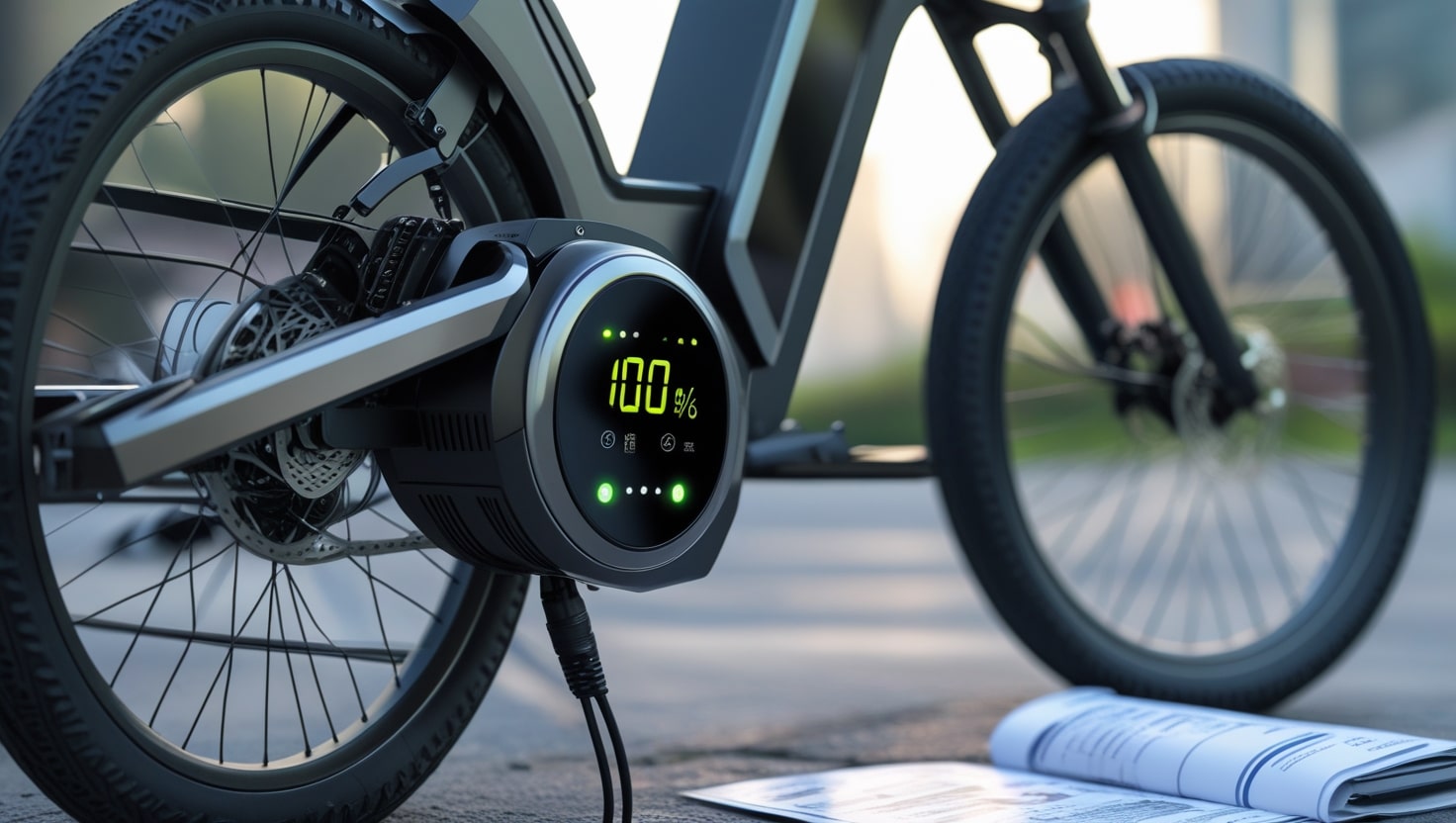Getting a title for a motorcycle may seem overwhelming, especially if it’s pre-owned or you’ve misplaced the original title. However, with the right guide, you can navigate this daunting process and tackle any roadblocks.
Each rider’s journey might differ, but whether you’ve recently purchased a bike or just need a new title, there’s a clear way to make your two-wheeler ready for the road. By understanding the essential steps of how to get a title for a motorcycle, you’ll smoothly move through the world of motorcycle titles. So, strap on your helmet and get ready to hit the road with confidence!
What Is a Motorcycle Title and Why Is It Important?
A motorcycle title is a crucial document that proves ownership of your bike. When a motorcycle is first manufactured, it comes with a Manufacturer’s Certificate of Origin (MCO) detailing specifics such as the make, model, year, and vehicle identification number (VIN). This MCO is presented to the local DMV by the buyer, who then receives a title as proof of ownership. From there, any time the motorcycle is sold, the seller signs over the title, and the new owner registers it with the state, ensuring the data is current and updated.
This updated document contains essential information like the odometer reading, owner’s name, address, and signature of both buyer and seller. The title tracks the history of the motorcycle, helping future buyers understand details like previous mileage and the bike’s ownership background. Every detail, from the issue date to the model specifics, plays a part in the title’s significance, making it more than just paperwork—it’s an essential part of any motorcycle transaction.
Understanding the Potential Risks of a Motorcycle Without a Title
Buying motorcycles without valid titles comes with risks that every buyer should understand. In the used motorcycle market, many sellers don’t have a motorcycle title due to it being lost, misplaced, or even destroyed over time. This is especially true for vintage bikes, custom-built motorcycles, or off-road models not made for street use.
Some older bikes, particularly those built before 1981, may lack identifying information like VINs or vehicle VIN information, as the U.S. government did not require such details at the time. Without an MCO or title, it can be hard to trace the bike’s history or prove legal ownership, making it essential to verify all available documents before purchasing these bikes.
Not having a title can hide potential legal, financial, or mechanical problems. The risk increases if the motorcycle does not have additional documents such as registration or maintenance records. These hidden dangers can include:
Potentially stolen: A missing title may indicate the motorcycle isn’t with its legitimate current owner. Purchasing a stolen motorcycle, even unknowingly, can make it impossible to register and may lead to legal liabilities such as fees, confiscation, or even criminal charges.
Outstanding liens: When a title is missing, it may be hiding outstanding liens or loans against the motorcycle, meaning the seller isn’t the full owner. By buying it, the new owner could inherit these debts, making ownership legally complicated.
Salvage or rebuilt: A motorcycle’s title also shows if it’s been totaled and salvaged or rebuilt. Without this information, the buyer might face challenges in trying to register or resell the motorcycle, as the missing title makes the history harder to verify.
Related: How to Get a Title for a Dirt Bike
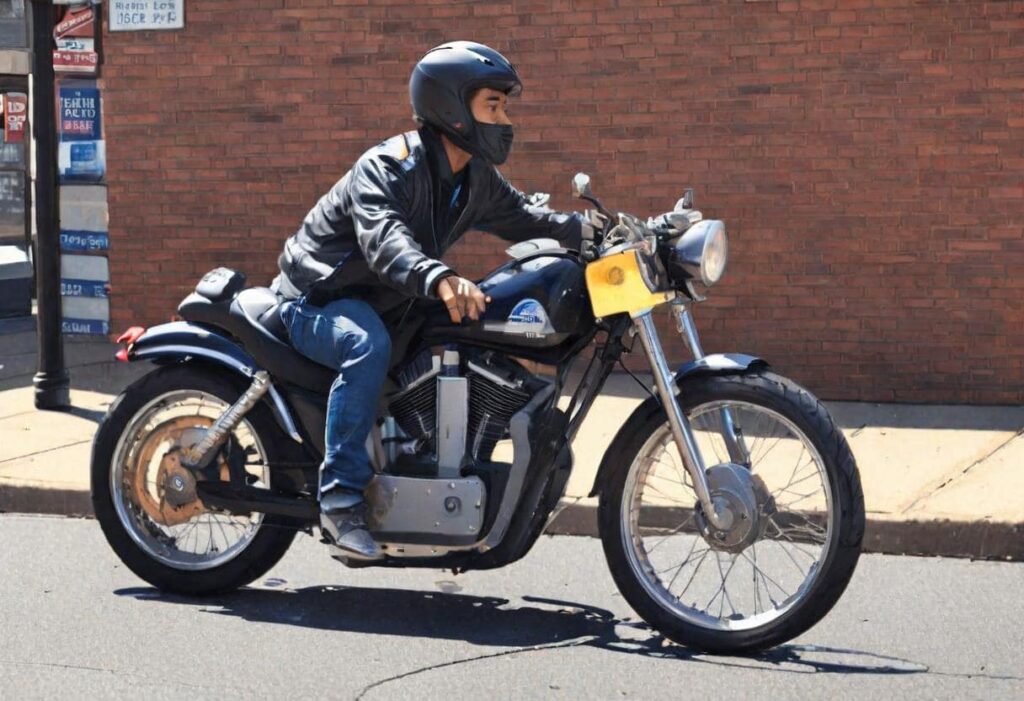
How To Verify a Titleless Motorcycle’s Origin
When purchasing a motorcycle without a title, it’s essential to verify its origin by checking the bike’s VIN. This 17-character code often appears on the frame near the steering head or on the engine casing and gives important information like the model, year of production, and where it was made. When contacting the seller, ask for the VIN; a legitimate seller should willingly provide it. If the seller seems hesitant or refuses, consider it a red flag as it might conceal legitimate issues about the motorcycle’s background.
Once you have the VIN, use various resources to gather all the information about the motorcycle:
Get a vehicle report: Run a VIN check using an online vehicle history report tool to find important information about the motorcycle’s past. Many advanced tools provide detailed insights, such as accident histories, repair histories, odometer checks, and factory recall checks, and can even tell you the number of previous owners. This vehicle report helps you make an informed decision about your purchase.
Use the NICB tool: The National Insurance Crime Bureau (NICB) provides a VIN lookup tool that allows vehicle buyers to see if a motorcycle has been reported as lost, stolen, or classified as salvage. This is a free and effective way to avoid unexpected issues down the line.
Contact the state DMV: Each state DMV or its equivalent agency keeps comprehensive vehicle records. Visit or contact your local DMV office to inquire if they provide VIN lookup tools or similar services. State-specific vehicle classifications, up-to-date registration details, and other detailed records for registered vehicles can be accessed, giving you a comprehensive understanding of the motorcycle’s status.
How To Get A Title For A Motorcycle
Obtaining a title for your motorcycle is a crucial step to establishing legal ownership and making sure you can register and insure your vehicle. The process may vary based on your specific situation—whether you’ve recently purchased a used motorcycle or are dealing with a lost title. To get your motorcycle title, follow your state’s requirements carefully to confirm your ownership and ensure smooth registration and insurance.
This section will walk you through the necessary steps to help you secure a title for your motorcycle.
Related: What Motorcycle Should I Get
1. Do Your Research On The Bike
Before applying for a title, it’s essential to do your due diligence on the motorcycle’s history. Start by verifying the VIN to confirm there are no liens or if the bike has been reported stolen. Conducting this thorough research can help you avoid potential complications in the titling process and ensure peace of mind by knowing you’re the legal owner.
2. Visit The Title Office
After gathering all the necessary documentation, head to your local agency or title office to start the process of getting a new title. The requirements and fees for a motorcycle title lookup can vary by state, so it’s important to research your state’s regulations in advance. Be prepared to show identification, proof of residence, and pay any applicable fees to ensure a smooth experience.
3. Present Documentation
When applying for a title, make sure to bring all required documentation to avoid any delays in the titling process. Essential documents include the bill of sale, proof of ownership, and any relevant paperwork like a lien release or VIN verification. Double-check that all paperwork is accurate and up-to-date to prevent any complications along the way.
4. Get A New Title
After submitting your application and paying the necessary fees at the title office, your request to issue a new title for your motorcycle will be processed. The processing time can vary depending on your state and the complexity of your situation, so it’s important to be patient and prepared to wait until the title is finalized.
After you receive your title, store it safely and keep a copy for your records. With your new title, you’re all set to register, insure your motorcycle, and enjoy the open road with peace of mind.

What Are Some Tips For Buying A Motorcycle Without A Title?
Purchasing a motorcycle with a missing title can be a risky venture, but with the right precautions, it’s manageable. A title provides proof of ownership, so without it, there could be issues like theft, liens, or even previous accidents hidden in the bike’s history. Taking the time to do your due diligence is crucial before completing the transaction.
Related: Does CarMax Buy Motorcycles?
1. Do A Quick VIN Check
Before buying a motorcycle without a title, it’s essential to run a quick VIN check. This step will help verify the vehicle’s history and determine if it has been reported stolen, has any liens, or was involved in accidents. Many websites offer VIN check services, some for free or for a small fee, allowing you to gather crucial information about the motorcycle’s background to make a safer purchase.
2. Get Bills Of Sale
When purchasing a motorcycle without a title, obtaining a bill of sale from the seller is crucial. This document serves as proof of the transaction and should include essential information like the make, model, and VIN of the bike, along with the buyer’s contact information and seller’s contact information. A complete and accurate bill of sale will make it easier if you decide to apply for a new title in the future.
3. Gather Seller Documentation
It’s wise to request documentation from the seller when buying a motorcycle without a title. Ask for maintenance records, receipts, and any previous registration paperwork to gather information on the motorcycle’s history. These documents can help establish a chain of ownership and verify the legitimacy of the bike. Having this documentation not only helps prove ownership but also makes it easier if you need to apply for a title down the road.
4. Go To The DMV Office
After you’ve completed the transaction and gathered all the necessary documentation, visit your local DMV office to start the process of obtaining a motorcycle title. At the DMV, you can inquire about any specific steps required to get a title and ensure you have all the needed paperwork in order.
Requirements may vary from state to state, but generally include submitting a detailed application, presenting documents such as a bill of sale, and paying any required fees. Be aware that this process can take time and may not always guarantee a new title depending on the situation. However, this is a necessary step if you plan to register and insure your recently purchased motorcycle.
Do You Need A Title For A Motorcycle?
Having a title for your motorcycle is usually essential if you plan on registering your bike, purchasing insurance, selling, or transferring ownership. This document is key to proving that you are the legal owner. In some states, older motorcycles or those with lower engine capacity may not require a title. However, it’s always best to check with your local state agency to confirm the specific requirements for your motorcycle.

Can You Buy A Motorcycle Without A Title?
It is possible to buy a motorcycle without a title, but it’s not recommended. Purchasing a bike this way can lead to complications with registering and insuring it and may even reveal hidden legal issues like theft or unpaid liens. If you are still planning to purchase one, it’s crucial to conduct thorough research and secure a bill of sale from the seller. Additionally, consult your local state to understand the process and requirements for obtaining a title.
Roadblocks To Titling A Motorcycle
Obtaining a motorcycle title is an essential step for any owner, as it confirms legal ownership of the vehicle. However, a number of challenges can complicate this important process. Let’s take a look at some of the most common hurdles motorcycle owners face when getting a title and discuss ways to overcome them.
Missing Title
A missing title is a common issue for many motorcycle owners and can happen due to misplacement, damage, or not receiving the title at the initial purchase. To resolve this, you can request a duplicate title from your state’s department of motor vehicles. This process usually requires proof of ownership, such as a bill of sale, and may involve paying additional fees.
VIN Verification
VIN verification is essential to confirming that the vehicle identification number (VIN) on your motorcycle matches the one on the title. If there’s a discrepancy, it could signal a potential issue like fraud or a clerical error. In such cases, it’s important to work with the state’s agency to rectify the issue and ensure the correct VIN is listed on both the motorcycle and the title.
Salvage Branding
A salvage branding is given to a motorcycle that has suffered significant damage, often from an accident. This branding can create roadblocks when trying to register or get a title, as many states require a thorough inspection and repair process to ensure the bike is roadworthy. Be sure to check the requirements in your state to follow the correct steps to obtain a rebuilt title if needed.

Stolen Motorcycle
If a stolen motorcycle is recovered, it can be difficult to obtain a title, as the rightful owner may have already reported it missing. In these cases, it’s crucial to work with law enforcement and the state’s agency to navigate the process of reclaiming ownership. This often requires documentation and proof of ownership and ensuring that any criminal investigations are resolved. Having a motorcycle title history or doing a motorcycle title check is also important to confirm ownership.
Unknown Lien Condition
An unknown lien condition may arise if there is an outstanding loan on the motorcycle that the new owner wasn’t aware of. This can cause obstacles in titling the motorcycle, as the lienholder has a legal claim on the bike until the debt is settled. It’s essential to contact the lienholder and find a resolution, whether that involves paying off the loan or negotiating for the release of lien.
Bonded Titles
A bonded title is a type of title issued when ownership documentation isn’t available for a motorcycle that may have been abandoned or when the rightful owner can’t be located. To obtain a bonded title, the applicant needs to purchase a surety bond equal to the value of the motorcycle and provide evidence of a good faith effort to find the previous owner. This process can be lengthy and may involve additional fees, but it allows the motorcycle to be titled and legally owned.
Stay Informed
When buying a motorcycle without a title, it’s a challenging process that requires the right knowledge and preparation. Start with a thorough VIN check and secure a bill of sale and any additional documentation from the seller. Visiting your local DMV office can also help minimize risks associated with purchasing a motorcycle this way.
By following tips like these, you can confidently navigate the process and enjoy your new ride. Always practice due diligence and stay informed about state’s regulations to ensure a smooth and successful transaction.


